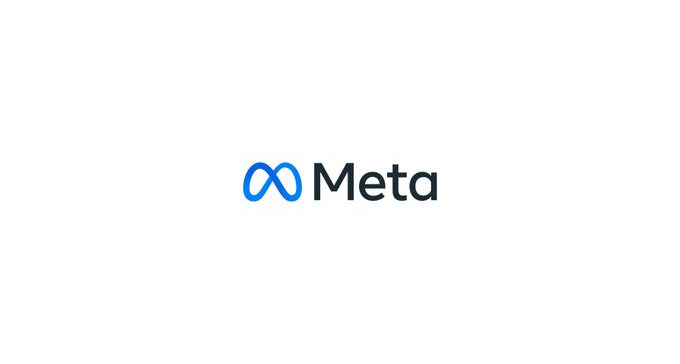SOCIAL
Meta Announces the Next Step in its Metaverse Transition

It’s the end of an era – though in practical terms it will have no impact on… well, anything.
Today, Meta has announced that it will switch from its current ‘FB’ moniker on the stock exchange to ‘META’ as of June 9th.
As per Meta:
“Meta Platforms, Inc. (Nasdaq: FB) today announced that its Class A common stock will begin trading on NASDAQ under the ticker symbol ‘META’ prior to market open on June 9, 2022. This will replace the company’s current ticker symbol ‘FB’, which has been used since its initial public offering in 2012. The new ticker symbol aligns with the company’s rebranding from Facebook to Meta, announced on October 28, 2021.”
Meta notes that no action by the company’s shareholders is required as a result of the change, and the company’s stock will technically continue to be listed on NASDAQ in the same way, other than the ticker update.
In other words, there will be no change, other than FB becoming META, which is the final step in its metaverse-aligned transformation, leading into its next stage.
Which Meta also flags in the final element of its press release:
“When Facebook launched in 2004, it changed the way people connect. Apps like Messenger, Instagram and WhatsApp further empowered billions around the world. Now, Meta is moving beyond 2D screens toward immersive experiences like augmented and virtual reality to help build the next evolution in social technology.”
The metaverse itself is still a fuzzy concept in many respects, with many, many steps required to enable a fully open, interactive set of digital realms, that would then enable users to transfer their digital purchases from platform to platform, and space to space, building the fully interactive virtual world that Meta CEO Mark Zuckerberg envisions.
Indeed, Zuck continues to be bullish on the prospects of the next stage, despite acknowledging that it’s going to cost him and his company, many billions of dollars before it starts to pay off in any meaningful way.
As Zuckerberg recently explained to Protocol:
“I want to live in a world where big companies use their resources to take big shots. Obviously, if people invest in our company, we want to be profitable for them. If employees join our company, I want to make sure that ends up being a good financial decision for them, too. But I also feel a responsibility to go for it. Use the position that we’re in to make some bets, and try to push forward in a way that other people might not.”
There are many risks in this approach, especially in going all-in this early, but the eventual vision of fully interactive digital worlds seems like it will be the future, especially when you consider that youngsters are increasingly growing up interacting in such spaces, via game environments like Fortnite, Roblox, Minecraft and more.
If anything, the pandemic accelerated this shift, with kids being forced to find new ways to socialize and interact with friends amid ongoing lockdowns and school closures. That’s formed new habitual behaviors, and in ten years time, these users will be totally accustomed to engaging within this way, which will spark the real metaverse shift that Zuck and Co. are pointing to.
Logically, this seems the most likely progression. But we’re not there yet, and that middle ground between the future and now will lead to much consternation and uncertainty over what, exactly, the metaverse entails.
That’ll also lead to profiteering, as all technological advances do, and you can already see consultants and advisory firms looking to spark fear among big businesses of them missing the metaverse boat and losing out to their competition. Much money is already changing hands in this respect – but again, the metaverse, in its fully interconnected, cross-communicative, fully interactive state is not here in any form as yet, and there will need to be significant agreement among the major providers to build for the next stage, before any major steps can be made.
There are elements, for sure, there are hints of what’s coming. But in the rush to stay ahead of the next wave, much time, effort and money will be wasted, when the most significant building blocks are yet to be put in place.
In other words, you don’t need to buy into the hype as yet, but it is worth taking note of the latest shifts, and considering the opportunities of the future, with digital goods, in particular, set to become a transformative element in the new market shift.
From 2030 on, this will be big, and you can build that into your roadmap, but it will take time. Investing in your tech stack makes sense, but going all-in, like Zuck and Co., may pose too many risks for smaller businesses.
SOCIAL
Snapchat Explores New Messaging Retention Feature: A Game-Changer or Risky Move?

In a recent announcement, Snapchat revealed a groundbreaking update that challenges its traditional design ethos. The platform is experimenting with an option that allows users to defy the 24-hour auto-delete rule, a feature synonymous with Snapchat’s ephemeral messaging model.
The proposed change aims to introduce a “Never delete” option in messaging retention settings, aligning Snapchat more closely with conventional messaging apps. While this move may blur Snapchat’s distinctive selling point, Snap appears convinced of its necessity.
According to Snap, the decision stems from user feedback and a commitment to innovation based on user needs. The company aims to provide greater flexibility and control over conversations, catering to the preferences of its community.
Currently undergoing trials in select markets, the new feature empowers users to adjust retention settings on a conversation-by-conversation basis. Flexibility remains paramount, with participants able to modify settings within chats and receive in-chat notifications to ensure transparency.
Snapchat underscores that the default auto-delete feature will persist, reinforcing its design philosophy centered on ephemerality. However, with the app gaining traction as a primary messaging platform, the option offers users a means to preserve longer chat histories.
The update marks a pivotal moment for Snapchat, renowned for its disappearing message premise, especially popular among younger demographics. Retaining this focus has been pivotal to Snapchat’s identity, but the shift suggests a broader strategy aimed at diversifying its user base.
This strategy may appeal particularly to older demographics, potentially extending Snapchat’s relevance as users age. By emulating features of conventional messaging platforms, Snapchat seeks to enhance its appeal and broaden its reach.
Yet, the introduction of message retention poses questions about Snapchat’s uniqueness. While addressing user demands, the risk of diluting Snapchat’s distinctiveness looms large.
As Snapchat ventures into uncharted territory, the outcome of this experiment remains uncertain. Will message retention propel Snapchat to new heights, or will it compromise the platform’s uniqueness?
Only time will tell.
SOCIAL
Catering to specific audience boosts your business, says accountant turned coach

While it is tempting to try to appeal to a broad audience, the founder of alcohol-free coaching service Just the Tonic, Sandra Parker, believes the best thing you can do for your business is focus on your niche. Here’s how she did just that.
When running a business, reaching out to as many clients as possible can be tempting. But it also risks making your marketing “too generic,” warns Sandra Parker, the founder of Just The Tonic Coaching.
“From the very start of my business, I knew exactly who I could help and who I couldn’t,” Parker told My Biggest Lessons.
Parker struggled with alcohol dependence as a young professional. Today, her business targets high-achieving individuals who face challenges similar to those she had early in her career.
“I understand their frustrations, I understand their fears, and I understand their coping mechanisms and the stories they’re telling themselves,” Parker said. “Because of that, I’m able to market very effectively, to speak in a language that they understand, and am able to reach them.”Â
“I believe that it’s really important that you know exactly who your customer or your client is, and you target them, and you resist the temptation to make your marketing too generic to try and reach everyone,” she explained.
“If you speak specifically to your target clients, you will reach them, and I believe that’s the way that you’re going to be more successful.
Watch the video for more of Sandra Parker’s biggest lessons.
SOCIAL
Instagram Tests Live-Stream Games to Enhance Engagement

Instagram’s testing out some new options to help spice up your live-streams in the app, with some live broadcasters now able to select a game that they can play with viewers in-stream.
As you can see in these example screens, posted by Ahmed Ghanem, some creators now have the option to play either “This or That”, a question and answer prompt that you can share with your viewers, or “Trivia”, to generate more engagement within your IG live-streams.
That could be a simple way to spark more conversation and interaction, which could then lead into further engagement opportunities from your live audience.
Meta’s been exploring more ways to make live-streaming a bigger consideration for IG creators, with a view to live-streams potentially catching on with more users.
That includes the gradual expansion of its “Stars” live-stream donation program, giving more creators in more regions a means to accept donations from live-stream viewers, while back in December, Instagram also added some new options to make it easier to go live using third-party tools via desktop PCs.
Live streaming has been a major shift in China, where shopping live-streams, in particular, have led to massive opportunities for streaming platforms. They haven’t caught on in the same way in Western regions, but as TikTok and YouTube look to push live-stream adoption, there is still a chance that they will become a much bigger element in future.
Which is why IG is also trying to stay in touch, and add more ways for its creators to engage via streams. Live-stream games is another element within this, which could make this a better community-building, and potentially sales-driving option.
We’ve asked Instagram for more information on this test, and we’ll update this post if/when we hear back.
-

 SEARCHENGINES7 days ago
SEARCHENGINES7 days agoGoogle March 2024 Core Update Finished April 19, 2024
-

 MARKETING6 days ago
MARKETING6 days agoNavigating the Video Marketing Maze: Short-Form vs. Long-Form
-

 SEO7 days ago
SEO7 days agoGoogle March 2024 Core Update Officially Completed A Week Ago
-
![The Current State of Google’s Search Generative Experience [What It Means for SEO in 2024] person typing on laptop with](https://articles.entireweb.com/wp-content/uploads/2024/04/The-Current-State-of-Googles-Search-Generative-Experience-What-It.webp-400x240.webp)
![The Current State of Google’s Search Generative Experience [What It Means for SEO in 2024] person typing on laptop with](https://articles.entireweb.com/wp-content/uploads/2024/04/The-Current-State-of-Googles-Search-Generative-Experience-What-It.webp-80x80.webp) MARKETING7 days ago
MARKETING7 days agoThe Current State of Google’s Search Generative Experience [What It Means for SEO in 2024]
-
SEARCHENGINES6 days ago
Daily Search Forum Recap: April 26, 2024
-

 WORDPRESS7 days ago
WORDPRESS7 days agoNew WordPress.com Themes for April 2024 – WordPress.com News
-
SEARCHENGINES4 days ago
Daily Search Forum Recap: April 29, 2024
-

 SEARCHENGINES5 days ago
SEARCHENGINES5 days agoOffline For Last Days Of Passover 5784
















You must be logged in to post a comment Login